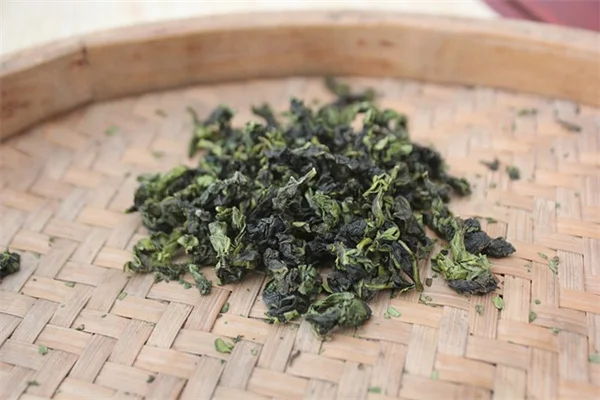COVID Smell & Taste Loss: When Will Yours Come Back? (New Research)
Advertisement
Will your smell and taste return after COVID? The answer is: Yes, most likely! New research shows that 88% of people regain their senses fully within two years after infection. I know how frustrating it can be when your morning coffee suddenly tastes like nothing - believe me, you're not alone in this. Over 27 million people worldwide have experienced COVID-related smell or taste loss, but here's the good news: scientists now have clearer answers about recovery timelines.We've been tracking the data since 2020, and the latest studies from Italy and the UK show remarkable progress. While some patients see improvement in weeks, others take months - but the majority get back to normal by the two-year mark. The best part? If you caught Omicron instead of earlier variants, you're even less likely to experience these sensory issues. Let's break down what this means for your recovery journey.
E.g. :Can Dogs Get Monkeypox? First Confirmed Case Explained
- 1、COVID-19 and Your Senses: The Good News About Smell & Taste Recovery
- 2、Why Does COVID Mess With Our Senses?
- 3、Living Without Smell or Taste - More Than Just Annoying
- 4、Can You Speed Up Recovery?
- 5、What This Means for You
- 6、Beyond the Nose - Other Surprising Ways COVID Affects Our Senses
- 7、The Mental Side of Sensory Loss
- 8、Fun Ways to Cope While You Wait
- 9、What Science Is Discovering Now
- 10、FAQs
COVID-19 and Your Senses: The Good News About Smell & Taste Recovery
Wait... 27 Million People Lost Their Smell or Taste?
Can you imagine waking up one morning and suddenly your morning coffee smells like nothing? That's exactly what happened to over 27 million people worldwide who experienced COVID-related smell or taste loss. The good news? New research shows most get these senses back within two years!
Let me break it down for you - when COVID first hit, losing smell or taste became one of its signature symptoms. Some folks recovered quickly, but others? They've been waiting months (or even years) for their senses to return. Here's what the latest science tells us about this weird phenomenon.
The Italian-UK Study That Gives Us Hope
Researchers in Italy and the UK followed 119 COVID patients who lost their smell or taste. They checked in at:
| Time After Infection | Percentage With Full Recovery |
|---|---|
| 4 weeks | 0% |
| 6 months | 56% |
| 2 years | 88.2% |
That's right - nearly 9 out of 10 people got their senses back completely within two years. Only 2.5% saw no improvement at all. Now here's something interesting - this study focused on people who had mild COVID cases from the original variant, not Omicron.
Why Does COVID Mess With Our Senses?
 Photos provided by pixabay
Photos provided by pixabay
The Nose Knows (Or Stops Knowing)
Ever wonder why COVID makes you lose smell? Dr. Vanessa Wu explains it like this: "The virus causes inflammation that disrupts smell receptors in your nose." It's like throwing a wrench into your nose's delicate wiring system.
Some patients report really bizarre changes - one person told doctors that warmed-up food tastes like chlorine! Others say meat suddenly smells rotten. The symptoms vary wildly, but they typically show up 4-5 days after infection, often before other symptoms like coughing.
The Taste Bud Mystery
Here's a head-scratcher - why would a respiratory virus affect taste? Researchers think COVID might slow down how quickly your taste buds regenerate. Imagine your tongue's taste sensors getting stuck in slow motion!
Did you know women tend to take longer to recover these senses than men? Scientists aren't entirely sure why, but it might be because women generally have better smell/taste to begin with, making the loss more noticeable.
Living Without Smell or Taste - More Than Just Annoying
When Eating Becomes a Chore
Think about your favorite meal. Now imagine it tastes like cardboard. That's the reality for many with long-term smell/taste issues. As Dr. Edwards puts it: "For some people, the simple joy of eating has been completely taken away."
This isn't just about missing out on flavors. About 43% of patients report depression, and many struggle with anxiety. There are safety concerns too - without smell, you might not notice gas leaks or smoke from fires.
 Photos provided by pixabay
Photos provided by pixabay
The Nose Knows (Or Stops Knowing)
Here's some good news - smell and taste loss happens way less often with Omicron compared to earlier variants. The newer variants seem to affect these senses less severely. Isn't it funny how the virus keeps changing its playbook?
Can You Speed Up Recovery?
Smell Training - Exercise for Your Nose
Want to help your nose get back in shape? Try smell training! It's like physical therapy for your schnoz. Here's how it works:
1. Pick 4 strong scents (like lemon, rose, clove, and eucalyptus)
2. Sniff each for 15 seconds while picturing what it should smell like
3. Do this twice daily for several months
Why does this work? It helps rebuild those neural connections in your brain that interpret smells. Think of it as rebooting your nose's operating system!
What About Medications?
Some doctors have tried steroids, but results are mixed. The truth is, for most people, time seems to be the best medicine. But here's a question - if you could choose only one sense to lose temporarily, would you pick smell or taste? Personally, I'd keep taste - life without pizza flavor would be too sad!
What This Means for You
 Photos provided by pixabay
Photos provided by pixabay
The Nose Knows (Or Stops Knowing)
If you're dealing with smell or taste issues after COVID, hang in there! The vast majority of people recover within two years. In the meantime, focus on food textures and temperatures to make eating more enjoyable.
Remember those 27 million cases we talked about? Well, the math says about 24 million have gotten better or will get better. Those are pretty good odds if you ask me!
When to See a Doctor
While most cases resolve on their own, consider seeing a specialist if:
- Your symptoms last more than 6 months
- You experience dangerous situations (like not smelling smoke)
- The loss significantly impacts your mental health
Researchers continue working on better treatments, so there's always hope for new solutions. In the meantime, maybe we should all appreciate our senses a little more - take a deep breath and enjoy that morning coffee while you can!
Beyond the Nose - Other Surprising Ways COVID Affects Our Senses
The Hearing Connection You Didn't See Coming
Did you know COVID can sometimes affect your hearing too? While it's less common than smell and taste issues, some patients report tinnitus (that annoying ringing in your ears) or even hearing loss after infection. Researchers think this might happen because the virus can cause inflammation in the inner ear's delicate structures.
Here's a wild fact - one study found that about 15% of COVID patients experienced some form of hearing change. The good news? Most cases improve over time, just like with smell and taste. But if you notice sudden hearing changes after COVID, don't wait - get it checked out by an ENT specialist.
When Food Feels Weird - The Texture Problem
Let me tell you about something really strange that some COVID long-haulers experience - food texture changes. Imagine biting into your favorite crispy french fries, but they feel like mush in your mouth. Or your normally smooth morning yogurt suddenly feels gritty. This isn't just about taste - it's about how food feels.
Why does this happen? Scientists think COVID might mess with the nerves that send texture signals to your brain. Some patients describe it like their mouth's "touch sensors" got scrambled. The silver lining? These symptoms usually improve along with taste and smell recovery. In the meantime, try focusing on temperature contrasts in food - the difference between hot soup and cold ice cream can help make meals more interesting.
The Mental Side of Sensory Loss
Why Losing Smell Hits So Hard Emotionally
Have you ever stopped to think about how much smell connects to our memories and emotions? That's why losing it can feel so devastating. When you smell fresh-baked cookies, it's not just about the cookies - it might remind you of grandma's house or childhood holidays. Without these scent triggers, some people feel like they've lost access to parts of their past.
Here's something fascinating - smell is the only sense directly wired to the brain's emotional center. That's why certain scents can instantly transport you back in time. No wonder people report feeling disconnected or depressed when this sense disappears. But here's the hopeful part - as smell returns, those emotional connections often come flooding back too.
The Social Impact Nobody Talks About
Let's talk about something awkward - body odor. When you can't smell yourself, social situations get tricky. Many patients share stories about not knowing if they need deodorant or if their breath is bad. Some become paranoid about personal hygiene, while others accidentally offend people without realizing it.
This creates real social anxiety. Imagine going on a first date when you can't tell if you forgot to put on deodorant! The solution? Create a hygiene checklist and ask close friends or family to be your "nose buddies" until your sense of smell returns. It might feel embarrassing at first, but trust me - people will understand.
Fun Ways to Cope While You Wait
Turning Mealtime Into an Adventure
When food tastes bland, get creative with your other senses! Try eating with your eyes closed to focus on textures. Or play "guess the ingredient" games with family members. You might discover new ways to enjoy food that don't rely on taste alone.
Here's a cool trick - crunchy foods often feel more satisfying when taste is limited. The sound and feel of crisp vegetables or crackers can make eating more enjoyable. And don't forget about temperature contrasts - alternating between hot soup and cold smoothies keeps your mouth entertained.
The Power of Scent Journaling
Want to track your smell recovery in a fun way? Start a scent journal! Every day, test a few common household items (like coffee, soap, or spices) and rate how strong they smell. Over time, you'll see your progress - and have a record of when certain scents start coming back.
This isn't just satisfying - it's actually a form of smell therapy. The act of consciously trying to identify scents helps retrain your brain. Plus, when you look back after full recovery, you'll appreciate how far you've come. Talk about a success story!
What Science Is Discovering Now
The Latest Breakthroughs in Smell Research
Researchers are making exciting discoveries about why some people recover faster than others. One recent study found that people with certain genetic markers tend to regain smell quicker. Another discovered that the original severity of smell loss doesn't always predict recovery time - some of the worst cases bounce back fastest!
Here's something that might surprise you - scientists are now using AI to analyze smell recovery patterns. They're feeding thousands of patient reports into machine learning systems to find hidden recovery clues. Who knew artificial intelligence could help with something as human as smelling flowers?
The Future of Treatment Options
While we wait for more research, some experimental treatments are showing promise. One approach uses platelet-rich plasma (PRP) injections in the nose to promote healing. Another combines smell training with mild electrical stimulation. These aren't widely available yet, but they offer hope for those still struggling.
Did you know there's now an app that guides you through smell rehabilitation exercises? It walks you through scent identification games and tracks your progress. Technology might just help solve this very human problem. Now if only someone could invent an app that makes pizza taste amazing when you can't smell it!
E.g. :When Loss of Smell and Taste Occurs with Long COVID > News ...
FAQs
Q: How long does COVID smell loss typically last?
A: Most people regain their smell within two years, according to the latest research. The Italian-UK study followed patients at 4 weeks, 6 months, and 2 years post-infection. While nobody had fully recovered at 4 weeks, over half (56%) were back to normal by 6 months. By the 2-year mark, a whopping 88.2% reported complete recovery. Only 2.5% saw no improvement at all. So if you're still struggling after a few months, don't lose hope - your nose might just need more time to reboot!
Q: Why does COVID affect smell and taste?
A: Scientists have a few theories about why COVID messes with your senses. For smell, it's mainly about inflammation damaging the smell receptors in your nose or the nerve cells that process scents. As for taste? Researchers think the virus might slow down how quickly your taste buds regenerate. Some patients report really weird changes - like food tasting like chemicals or everything smelling like smoke. The good news is these changes are usually temporary as your body heals.
Q: Is smell training really effective for COVID recovery?
A: Yes, smell training can help! Think of it like physical therapy for your nose. Here's how it works: you sniff strong scents (like lemon or cloves) daily while concentrating on what they should smell like. This helps rebuild those neural connections in your brain that interpret smells. Many patients see improvement after several months of consistent training. While it's not a magic cure, it's currently the most recommended therapy by specialists. Plus, it's completely safe to try at home!
Q: Are some people more likely to lose smell/taste from COVID?
A: Women and original variant patients seem to be most affected. Research shows women often take longer to recover their senses - possibly because they typically have better baseline smell/taste. Also, if you had one of the earlier COVID strains (not Omicron), you were much more likely to experience these symptoms. Other factors like smoking and having both smell AND taste loss (not just one) might affect recovery time too, but scientists need more data to be sure.
Q: When should I see a doctor about my COVID smell loss?
A: Consider seeing a specialist if: your symptoms last more than 6 months, you can't detect dangerous smells like smoke or gas, or the loss is seriously affecting your mental health. While most cases resolve on their own, a doctor can rule out other causes and suggest therapies. About 43% of long-term patients report depression, so don't hesitate to seek help if you're struggling. Remember - you've got about an 88% chance of full recovery, but there's no shame in getting professional support along the way!


